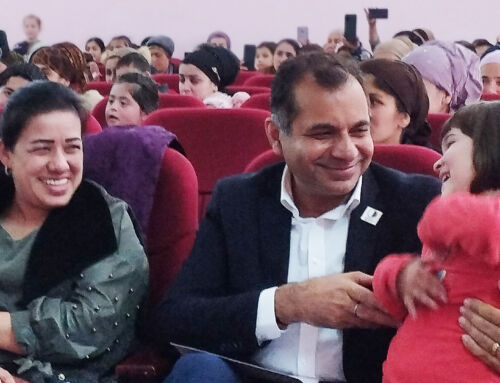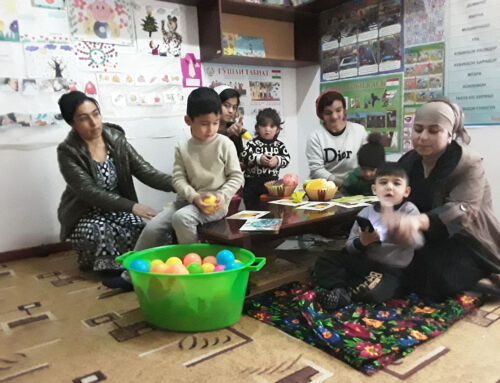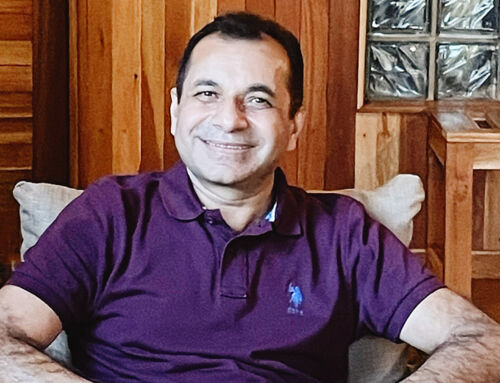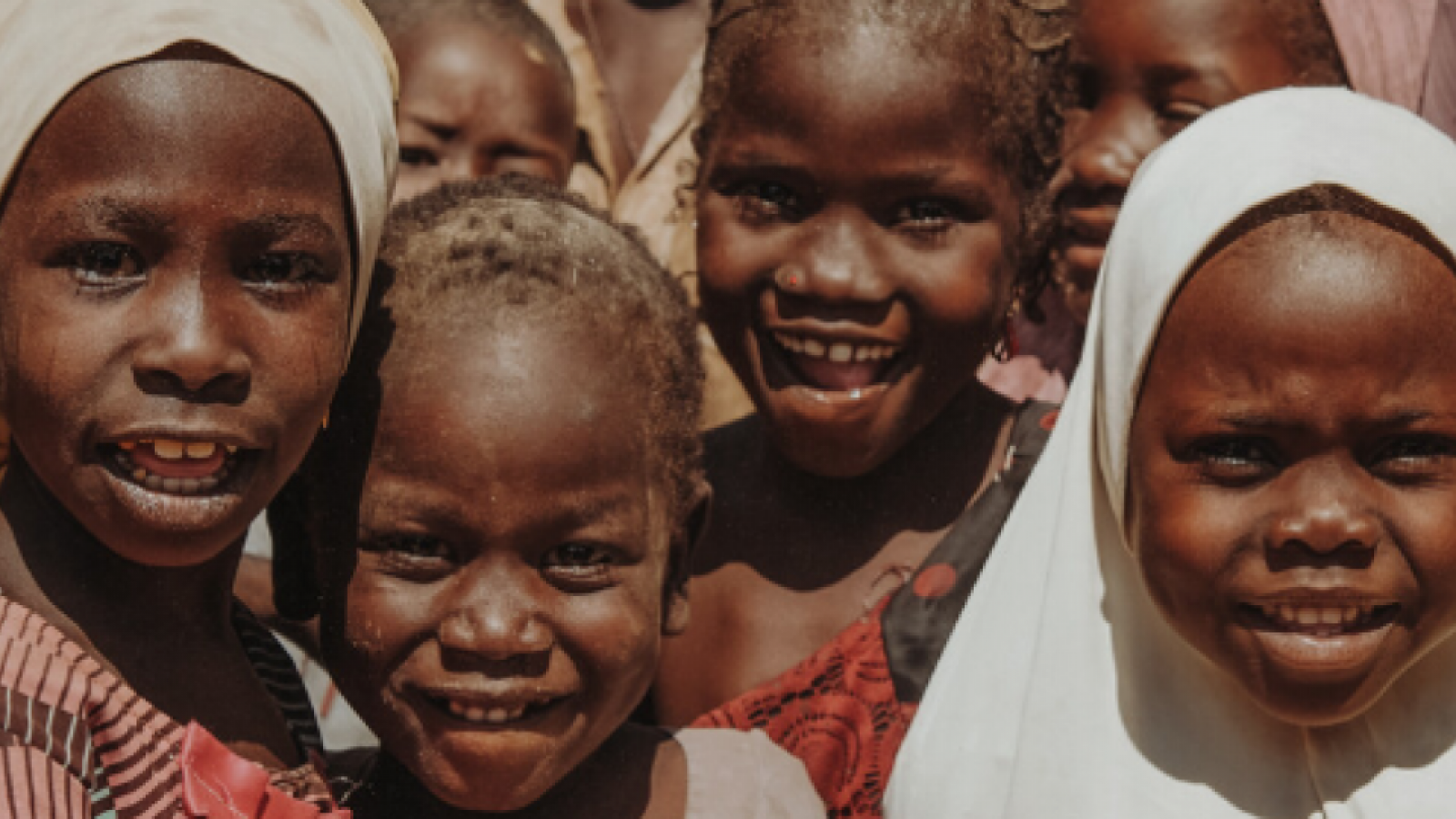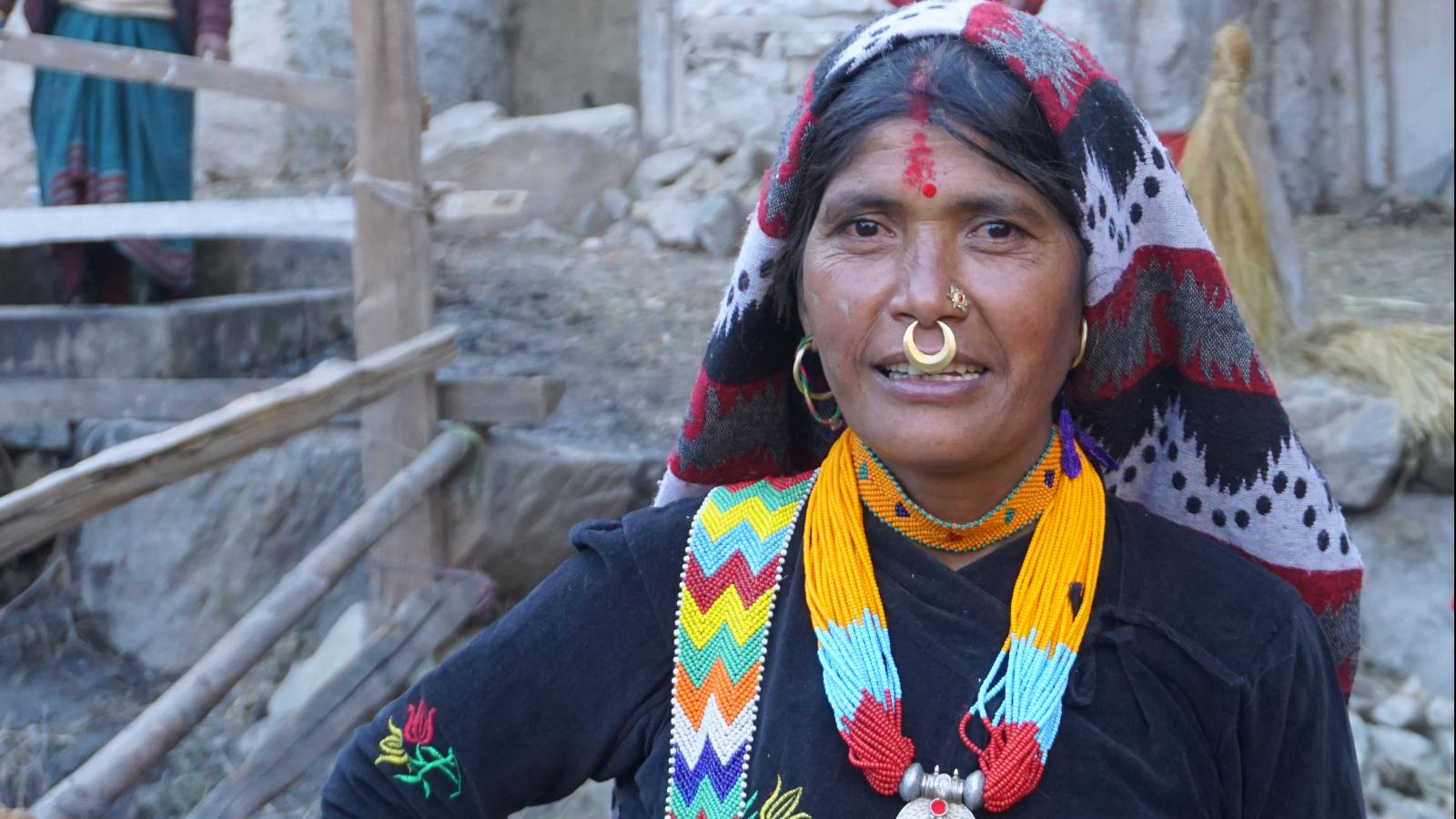Mission East has worked in Tajikistan, the poorest of the former Soviet republics, since 1997. In the early days, the organisation distributed food aid to tens of thousands of vulnerable locals. Later, the focus shifted to long term development projects.By Kim Wiesener, Communications Officer
When Kenneth Whitelaw got off the plane in the Tajik capital Dushanbe in August 1997, he immediately understood that something was wrong. The luggage had already been dumped on the landing strip, and soon, the plane took off again. The locals advised him to leave, as it turned out that fighting between rival gangs had erupted the previous night. This brought back unpleasant memories of the civil war that had ravaged the country for the previous five years.
If Kenneth had known that unrest would break out at that particular time, he would probably have postponed his arrival, and Mission East’s work in the poorest of the former Soviet republics might have been significantly delayed. Instead he chose to stay and create the foundations for a Mission East presence in the country that has now entered its twentieth year.
The first days were quite nerve-wracking. On his way from the airport, Kenneth had to cross the ‘front line’ in Dushanbe on foot, because the taxi driver refused to continue due to the fighting. Then he mostly had to stay indoors for a couple of weeks, as the UN said that it was too dangerous to go out. But gradually, peace descended on the capital, and he started working.
When Kenneth, whose surname is now Whitelaw-Jones, reflects on his early days in Tajikistan, he obviously remembers the poverty and looming violence. But his strongest memories are of the country’s beauty and the generosity of the local population.
“They were incredibly hospitable. They were willing to share their last food with you, and they did it with joy. They also had a fantastic sense of humour,” he recalled.
”Even in Soviet times we had nothing”
During the pioneering days, it was the need for emergency food aid that drove Mission East’s work. According to the UN, Tajikistan found itself in a ”continuing, almost chronic, emergency situation”. Half of the country’s children were malnourished, and a family described the lot of the Tajiks as follows: “We are a forgotten people – even in Soviet times we had nothing, and now it is getting worse and worse.”
The first shipment of aid consisted of 29 containers with 471 tons of food which was distributed to tens of thousands of vulnerable people in the southern province of Kulob. They each received a parcel of 15.8 kilos that contained rice, flower, cooking oil and other foodstuffs.
The needs were enormous. In 1997, a large proportion of the Tajik population was forced to its knees following the Soviet collapse and the ensuing civil war. Poverty in rural areas was so serious that many families had to sell their animals to buy bread for their children who were sleeping on dirt floors. They often did not go to school because they had no clothes to wear.
Mission East was cooperating closely with local communities to ensure that the food aid reached those who needed it most. Staff members were also present during distributions of food parcels, creating a lot of trust among local people – and a very low percentage of waste.
Tomatoes and eggs on the menu
The food distributions continued for several years. Mission East helped a large group of very poor Tajiks get through some tough times in the late 1990s. It also quite soon became clear that more long-term development aid was necessary to reduce people’s dependence on food parcels. From 1999, tomatoes and eggs were added to the menu in some Tajik homes. About 60 rural families who were already Mission East food aid beneficiaries, were given 100 tomato plants each. Some of the produce they used in their households, some they sold at the local market.
In the spring of 1999, Momasulo Khodyaeva, a widow with six children from the village of Choktemur, became the proud owner of a small group of hens. More than 100 other families did the same. She told the Mission East magazine: “Now we are producing our own eggs, we do not need to buy them. This has given us better nutrition. There are a lot of calories in eggs, which is good, as we can only afford red meat once a year.”
Died from dirty drinking water
In the late 1990s, Mission East pioneered water, sanitation and hygiene (WASH) in Tajikistan. This was later to become one of the organisation’s main areas of expertise. Two thirds of the population lacked access to clean drinking water, and several thousand children died every year from water borne infectious diseases. As part of a project in Southern Tajikistan, 20 villages received clean drinking water and hygienic latrines to reduce the prevalence of diseases.
Today, Mission East continues to run water and sanitation projects in Tajikistan. In 2015, 2,000 people got new toilets, either in their home or village. Although the country has become more stable than during the dramatic years in the 1990s, it is still one of the world’s poorest. The way Kenneth Whitelaw-Jones, who now works for the European Development Bank, sees it, it has been difficult for Tajikistan to find its place in the global economy. However, tens of thousands of Tajiks can thank Mission East for making their lives just a bit easier during hard times. And to this day, people with disabilities still benefit from the support they receive.
Kenneth Whitelaw-Jones hopes that he made at least a little difference back in the 1990s: “I consider it a great privilege to have taken part in this work during my formative years. I met some fantastic people, and I think that they gave me at least as much as I gave them.”
The original Danish language version of this article was published in a special edition of the Mission East magazine to commemorate the organisation’s 25-year Jubilee in November 2016.
———————————————————————————————————————————————————–
Hospitality is paramount
In Tajik, hospitality is called mehmonnavozii and forms an important part of the way the Tajiks see themselves. Guests – invited as well as uninvited – get the best seat opposite the door and are treated to tea, sweets and up to several meals, no matter what time of day. A Tajik explanation for this hospitality is that Abraham – known as Ibrahim in Islamic tradition – was famed for his great hospitality. Consequently, the poverty of many families is a source of shame because they cannot treat their guests as proper tradition dictates.


